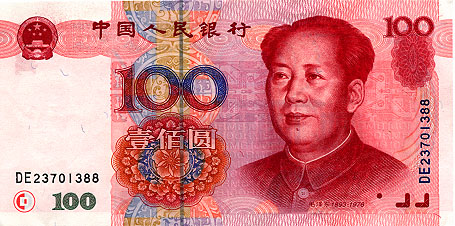The People’s Bank of China, Beijing’s central bank, imposed a surprise devaluation of 1.9 percent in the value of the nation’s currency, the Yuan or Renminbi. This sudden move by the economic central planners in the People’s Republic of China was in response to a cascade of worrying trends confronting the leadership of the world’s second largest economy.
A country devalues its currency in response to bad economic trends, and never for positive reasons. The negative news emerging from China’s manufacturing sector, in combination with the collapse in the Chinese stock market, has led to the decision to devalue the Yuan, hoping that this policy move will boost Chinese exports. The problem is that this move hurts everyone else, especially the United States. What the financial commentator James Rickards described in his book as “Currency Wars” just got a massive dose of escalation from Beijing, which will likely trigger counter-moves by other major economies that will ultimately damage the global economy as a whole.
The recent moves by the Bank of Japan in driving down the value of the yen, on top of the continuing row over the value of the Chinese Renminbi or yuan, may be signs of a growing risk of a currency war by advanced and major emerging economies. With the risk of a double dip recession increasing, the transitory and increasingly marginalized economic recovery from the implosion of 2008 running out of steam after massive doses of public debt growth and the bond markets beginning to get restless over government deficits that are out of control, the supposedly unified G20 may be looking to their currencies as a last ditch attempt to reverse disastrous rates of unemployment.
It is ironic that devaluing one’s own currency is seen as being the best move on the grim economic horizon. However, with central bank interest rates of near zero percent having failed to unleash sustained economic growth, and debt-saturated fiscal policy proving as feeble as monetary policy, currency devaluation may be seen as the only viable option left for policymakers.
In theory, a cheapened currency makes a nation’s exports more competitive, while adding a premium on imports, leading to a better current account balance and growth in export-based manufacturing sectors. Devaluation is also a way of reducing the real value of the national debt. The problem with this approach is that it is not unilateral; other countries can play around with their currencies. Furthermore, trying to effectively restructure your debt on the sly through devaluation will undoubtedly choke off cheap sources of credit. If the recent currency moves are pointing towards increased currency manipulation by sovereigns, my belief is that this approach will prove every bit as ineffective as has been massive government deficits and zero interests rates offered by central banks.

For the first time since 2004, China incurred a net trade deficit totalling more than $7 billion in March. China’s Statistics Department maintains that the primary drivers of the deficit were surging imports of industrial commodities, including oil and minerals. In addition, certain consumer durables, including automobiles, also encountered increased demand from China’s domestic market.
The authorities in Beijing believe that the March trade deficit was an anomaly, and that China will return to a net surplus in its international trade. However, the March trade deficit does strengthen the case of those in the Chinese leadership who believe their country should take an inflexible stand in negotiations with Washington on the exchange rate of the national currency, the yuan or renminbi. It is likely that China will be even more determined to resist U.S. pressure to allow the value of the renminbi to appreciate. This sets the stage for increased tension between Washington and Beijing over fundamental issues that will determine the trajectory of the ongoing global economic crisis.



